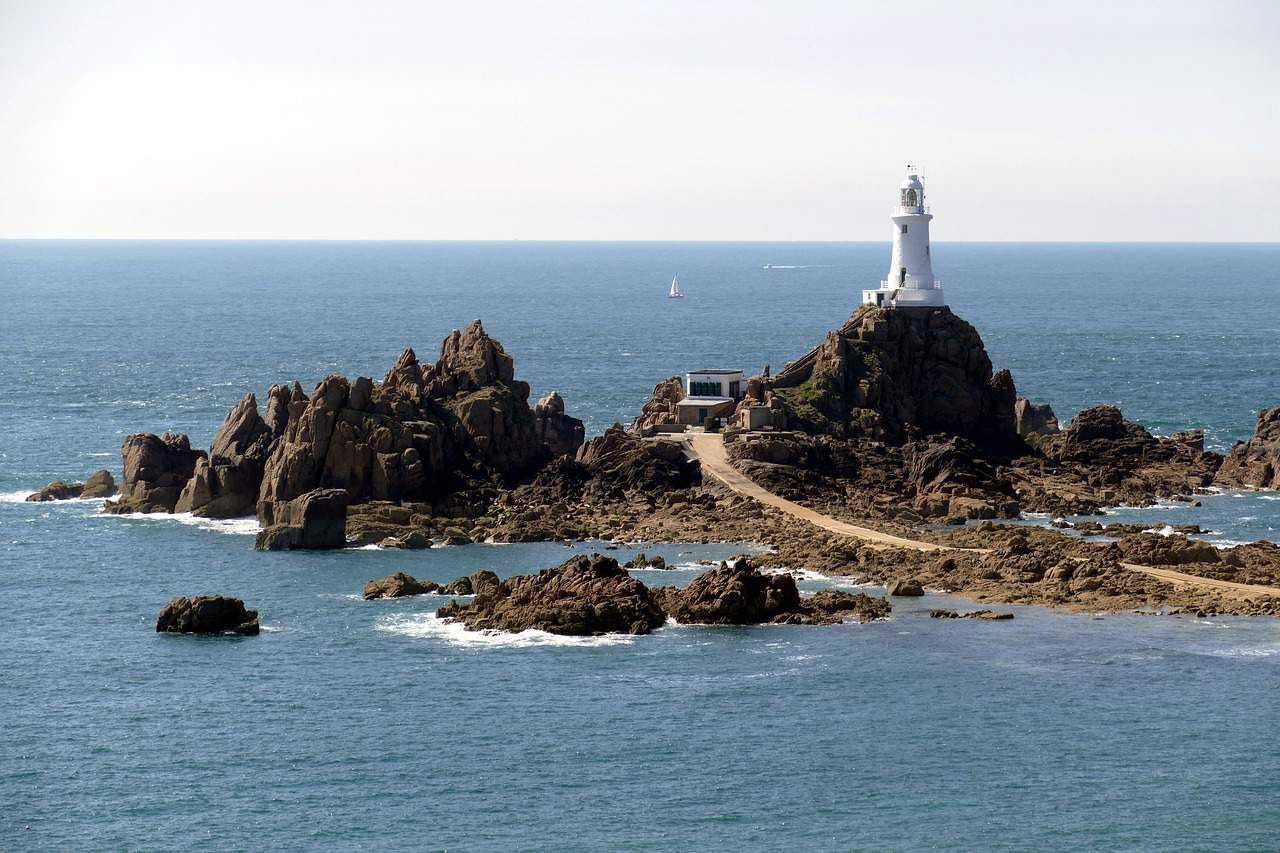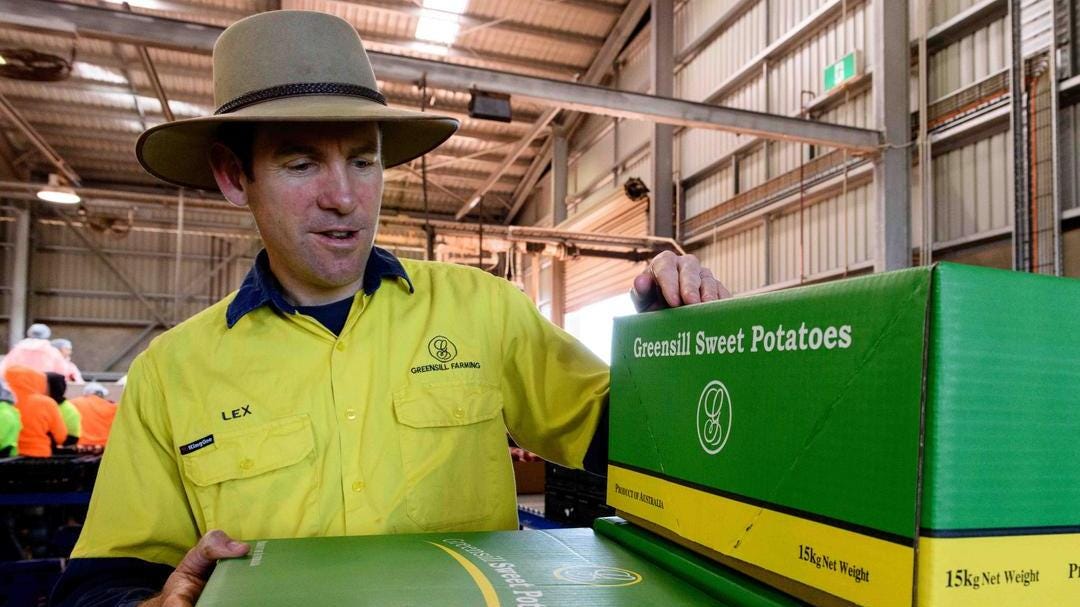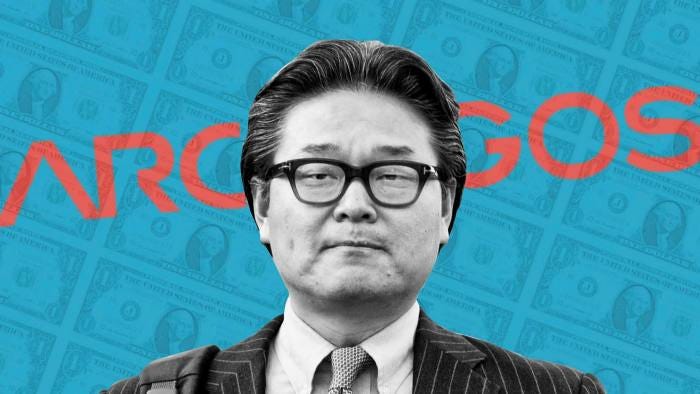Jersey
Institutional Investor tells this absolutely wild story about Jersey - the island, not the state - and an elaborate fraud network allegedly run by a Canadian billionaire. There’s a lot here, so I’ll focus on how Jersey has been used by the UK crown and international tax cheats for decades? centuries?:
A so-called “peculiar possession” of the British Crown, Jersey in many ways acts like an autonomous country, with its own parliament, judiciary, and treasury that prints Jersey money bearing the visage of the queen, pegged to the British pound. Jersey has constitutional rights separate from the U.K. dating back to the year 1204, but does not answer to the U.K. It responds solely to the authority of the queen.
This sounds very British and quirky until you realize that nearly every big-name bank and financial institution has an office there. Why? Well:
Nearly two decades ago, Jersey reduced its corporate tax rate from 20 percent to zero, with the exception of finance, which pays 10 percent. In doing so, it became a lightning rod for discerning clients in search of lower tax rates.
Ah, yes, of course. It’s a tax haven. Banks love it, hedge funds love it, financial criminals love it, even Apple loved it, until they got caught hiding offshore profits there.
Unlike some havens that are independent nations with their own governments, Jersey has an entirely different system:
A major challenge for Jersey is that it frequently operates as a closed-circuit system where any issues that arise can be swiftly quashed by a tightknit group of unelected crown officers, appointed by the queen, who effectively control the power levers of the island. Jersey does not have the same separation of powers as most other democracies: The bailiff, appointed by the queen, heads the parliament, judiciary, and appeals court, while the island’s parliament itself is a unicameral chamber where political parties, opposition, and dissidents are neutralized quickly.
On paper, it’s a charmingly antiquated system, with lots of robes and rituals. In practice, it can be a terrifying place to seek accountability, prompting the islanders to give this state of affairs its own label: the “Jersey Way.”
For years, foreign courts and politicians and watch groups have called attention to the Jersey Way, but the island has thus far resisted any efforts to change. Not even a massive child sexual abuse scandal could force serious reflection.
Anyhow, the company in question in this lawsuit - La Hougue - was a firm that managed offshore trusts for rich people. It also appears that it was engaged in elaborate document fabrications to drain said trusts of their funds for the benefit of La Hougue’s owners. One of the company’s founders had a vault with a forgery setup that sounds like something out of a movie:
The vault of [John Dick]’s office was not filled with cash, but with an eclectic collection of aging office equipment, labeled and dated by year. “There was a walk-in safe with a big metal door, and I remember, as a teenager, seeing all these dusty typewriters, fax machines, old pens, and old paper lined up on the shelves,” [Tanya Dick-Stock] says. “Once, I grabbed some of the old paper, and my dad nearly ripped my head off.”
[…]
According to one leaked memorandum between directors of La Hougue who worked with Dick-Stock’s father, forged documents were to be carefully prepared using printing materials and time stamps reflecting their purported date of provenance. “Remember the paper which is used, the machinery which prepared the documentation, the ink as it relates to preparing the documentation, and the signing thereof as it relates to the date,” the memorandum instructs
Despite Dick-Stock winning US and UK judgements and admissions from La Hougue’s directors and possessing hundreds of thousands of documents proving the company was doing fraud, Jersey prosecutors and judges won’t pursue the case. The island’s financial regulator isn’t interested. One of the judges - who was also a founding member of La Hougue - just ruled that the plaintiff should be removed from all her family trusts because she shared the documents with the media.
All of this is uncomfortable for Jersey’s ruling elite - some of whom are implicated - and should be uncomfortable for the UK royals, but, really, there’s no incentive for any of them to make any changes. They’re rich, they have a captive tax haven where they can do what they want, and other governments don’t seem eager to take any action beyond sternly worded memos. Jersey certainly isn’t the only tax haven out there - since 2008 La Hougue has hopped to Panama and the British Virgin Islands - but it’s another reminder that there are two sets of rules for the haves and have nots. If you reach a certain level of wealth, regardless of how you got it, you can be invited into the literal ruling class, and you become untouchable.
Greensill
In early March, a company called Greensill Capital filed for bankruptcy in London. It caught a lot of the finance world off guard, as did the speed at which its collapse set off shockwaves at major banks, insurers, and the West Virginia governor’s mansion. So what on earth happened?
Mr. Greensill positioned his firm as a middleman that would pay the suppliers faster — minus a small percentage as the cost of getting quick payment — and then allow time for the buyer to pay back the middleman.
It’s called supply chain finance, and it’s a traditional form of lending in the business world.
But Mr. Greensill added an extra layer of complexity. He took the supplier invoices, turned them into short-term assets and put them into funds, similar to money market funds, that investors could buy. The funds were sold through Credit Suisse, the big Swiss lender, and a Swiss asset management firm called GAM. The money from investors helped to pay back suppliers.
Greensill turned a mundane finance practice into an ultra-lucrative business in part because it was able to shuffle around the risk, pushing some of it onto insurance companies and other financial firms. It has echoes of the asset-backed securitization that was at the heart of the 2008 financial crisis.
Okay, so Greensill took “supply chain finance” which is basically fronting suppliers money for their product, for a small cut, and turned the outstanding invoices into investment vehicles. That seems a little risky - the buyer might not pay the invoice - but not crazy risky. Right?
Promoted as a “win-win” for buyers and suppliers, supply chain finance can obscure problems on a company’s balance sheet. The money a buyer owes to the middleman, such as Greensill Capital or a bank, shows up as a “trade payable” or “accounts payable” — that is, money owed to a supplier — rather than as debt. It can be a hidden form of borrowing if it is not disclosed — and there is no accounting rule that requires it to be disclosed.
Okay, that starts to sound a little bit worse - companies can use the money to hide problems with their finances. But still not, like, destroy-the-world bad. The problems began in 2018, when Greensill made increasingly large investments - loans? - to mining magnate Sanjeev Gupta. Greensill had acquired a bank in Germany - as one does - and German auditors found problems with Gupta’s businesses:
An audit in 2019 found Greensill Bank was overly exposed to Mr. Gupta’s companies. That attracted the interest of BaFin, Germany’s bank regulator. This month, BaFin said it had uncovered evidence that assets linked to Mr. Gupta listed on the bank’s balance sheet did not exist.
The administrator of Greensill’s bankruptcy found the same thing:
Grant Thornton, which is looking to recoup money owed to Greensill in its role as administrator to the collapsed firm, last month approached companies that were listed as debtors to Gupta’s Liberty Commodities trading firm, which borrowed hundreds of millions of pounds backed by invoices.
[…]
However, several of these companies have disputed the veracity of the invoices from the metals magnate’s commodities trading firm, according to people familiar with the matter and correspondence seen by the Financial Times.
RPS Siegen GmbH, a German scrap metals business, confirmed to the FT that it had been approached about an outstanding invoice and said that it had not traded with Liberty Commodities.
“We know them, but a trading relationship between us does not exist,” said Winfried Winterhager, manager at RPS Siegen.
So Gupta’s companies were getting money from Greensill for invoices that didn’t exist. Not great!
In the US, Greensill added what the NYT politely calls a “twist” to its model - and here’s where Jim Justice makes an appearance:
Gov. Jim Justice of West Virginia and his coal mining company, Bluestone Resources, sued Greensill for fraud on March 15 in federal court, arguing that Greensill misled them into deepening their ties without disclosing its financial troubles. Before it collapsed, Greensill lent Bluestone $850 million, much of it borrowed against “prospective receivables,” which are sales that haven’t happened yet.
If that sounds odd, it’s because it is. Greensill basically started offering payday loans to US companies, based on “prospective” sales that were in no way guaranteed. And Justice took out almost a billion dollars’ worth. Seems bad!
Here is a breakdown on what on earth happened at the insurance companies and banks who were backing Greensill’s portfolio, and it all sounds very unpleasant. A mix of incompetence, fraud, and who-knows-what else. I’ll let the regulators figure it out.
Unfortunately, because Greensill had propped up Gupta’s acquisition of a variety of companies throughout the world, as many as 35,000 jobs may be impacted.
Archegos
We’ve talked a little about margin calls around here - essentially, a lender deciding it needs more of your money to hedge the risk you’re taking. Enter Bill Hwang and Archegos Capital Management:
Hwang and his private investment firm, Archegos Capital Management, are now at the center of one of the biggest margin calls of all time -- a multibillion-dollar fiasco involving secretive market bets that were dangerously leveraged and unwound in a blink.
[…]
“I’ve never seen anything like this -- how quiet it was, how concentrated, and how fast it disappeared,” said Mike Novogratz, a career macro investor and former partner at Goldman Sachs who’s been trading since 1994. “This has to be one of the single greatest losses of personal wealth in history.”
So, again - what the hell happened? Bill Hwang was a mostly unknown figure in the hedge fund world - though he’d settled a civil lawsuit for insider trading in 2012 and been barred from trading stocks in Hong Kong for market manipulation. He opened Archegos, and quietly used his own - and maybe others’ - money to build what’s called a “family office” or privately-run hedge fund that doesn’t have to disclose what it’s doing to regulators.
Then, near as anyone can tell, he used financial instruments called swaps to take bigger and bigger positions in the stock market - leveraging his portfolio 6 to 8 times while banks held onto both the stocks and the risk. The swaps allowed him to evade regulatory disclosure, since he wasn’t the one holding the positions - the banks were, on his behalf.
How on earth did a guy who was accused of financial crimes get credit lines in the tens of billions? Good question, says the Financial Times:
Each bank may have felt comfortable with their exposure to Archegos, assuming they could always ditch its positions to cover themselves. But they failed to appreciate that if everyone has to dump tens of billions of dollars worth of equities, the collateral they may have embedded in their contracts is going to be wholly inadequate.
Which, okay, Hwang may have taken advantage of the fact that each bank was competing for his business, and spread his portfolio around, so the banks didn’t take into account how leveraged up he was with their peers. But his positions were very aggressive for what was allegedly a small family office:
Which leads us to another question: What is Archegos Capital exactly? The size and leverage of its positions would be extreme even for one of the more aggressive members of the hedge fund industry, let alone a family office. In truth, it seems more like a Reddit day trader got access to a Goldman Sachs credit card and went bananas.
Indeed! So what’s the damage?
Bankers reckon that Archegos’s net capital -- essentially Hwang’s wealth -- had reached north of $10 billion. And as disposals keep emerging, estimates of his firm’s total positions keep climbing: tens of billions, $50 billion, even more than $100 billion.
Oh boy. So banks may be forced to sell as much as $100 billion worth of stock they were holding on behalf of this guy, and write down billions in losses. The collapses of Greensill and Archegos happened in the same month. I am not a finance person, but it sure seems like whoever is assessing risk at these banks and insurance companies is not doing a very good job.
Mafia Chef
I received no less than half a dozen messages about this story, which of course I am going to write about:
Marc Feren Claude Biart, 53, led a quiet life in Boca Chica, in the Dominican Republic, with the local Italian expat community considering him a “foreigner”, police said in a statement on Monday.
He was betrayed by a YouTube channel in which he showed off his Italian cooking skills. The videos never showed his face, but the tattoos on his body gave him away, they said.
Bummer! Biart has been on the run for 7 years, accused of trafficking cocaine for the ‘Ndrangheta, who we’ve talked about. I also talk all the time about how you should not post your crimes on YouTube, but in this case it seems authorities had been tracking Biart’s wife, who led them to his cooking channel:
Alerted by his wife's YouTube activity and armed with the knowledge that the fugitive had previously worked at a restaurant in Italy, Galasso said, police discovered the cooking videos and realized they had their man.
Mio Dio! I am upset none of the articles I found on this case linked the YouTube channel - I want to know if he was any good! YouTube has no problem hosting white supremacist videos, surely they didn’t take down the Mafia Chef content. If anyone finds his stuff, please let me know.
Short Cons
The American Prospect - “Those lawsuits filed against Sackler family members will be simply wiped out with the stroke of a pen, with no hearing on the merits, if the bankruptcy judge agrees to a plan based on one Purdue Pharma proposed earlier this month.”
NBC San Diego - “"Nearly 500 victims poured over $350 million into Champion-Cain's sham investment scheme. Ms. Champion-Cain did not use the money to finance liquor-license transactions, as she told investors. Rather, she used tens of millions of dollars to line her own pockets and to support her failing Patio restaurants and other retail businesses."”
ProPublica - “A top adviser to former President Donald Trump pressured agency officials to reward politically connected or otherwise untested companies with hundreds of millions of dollars in contracts as part of a chaotic response to the COVID-19 pandemic…”
Tips, thoughts, or mafia chef videos to scammerdarkly@gmail.com




/https://www.stcatharinesstandard.ca/content/dam/niagaradailies/entertainment/2019/09/02/mobsters-cooks-and-lovers-sopranos-stars-cooking-up-reunion-in-falls/B88841192Z.1_20190830144507_000_GQKMV1SA.3-0_Gallery.jpg)